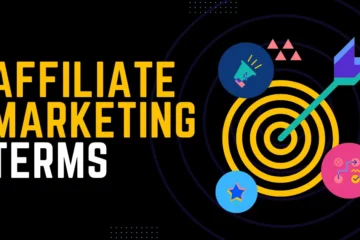I’m going to kick things off by discussing what affiliate marketing is and why it’s become such a vital part of the digital economy. When you’re browsing your favorite blog and come across a product recommendation complete with a purchase link, chances are you’re looking at affiliate marketing in action. It’s a strategy where businesses pay external websites or individuals, known as affiliates, a commission for directing traffic or sales their way.
This isn’t just about driving traffic; affiliate marketing operates on a performance-based reward system. So, when someone clicks on one of these links and makes a purchase, the affiliate earns a commission. It’s a win-win: companies increase their sales, and affiliates monetize their content.
However, I’m here to help you understand that effective affiliate marketing relies on trustworthy relationships—not only between affiliates and businesses but also between affiliates and their audience. Ethical practice is the foundation that supports every successful affiliate marketing venture. It emphasizes honesty, transparency, and value to the user, aligning perfectly with the principles of E-E-A-T, reflecting expertise, authoritativeness, and trust.
The DOs of Affiliate Marketing: Best Practices to Embrace
I’m going to cut to the chase and tell you straight up what you should be doing in the world of affiliate marketing. First and foremost, it’s crucial to select the right affiliate products and partners. You’re going to want to partner with companies that align with your audience’s interests and offer valuable, high-quality products. This involves doing your homework to ensure that the products you promote are worthy of your recommendation.
Next up is focusing on content quality and relevance. Offer your audience information that matters. Tailor your content to answer their questions and solve their problems, all the while incorporating affiliate products naturally. This isn’t just about getting clicks; it’s about providing value.
Consistency is your friend here. Regularly promoting products, updating content, and engaging with your audience backs up your authority and keeps your content relevant. Remember, affiliate marketing is a marathon, not a sprint, and consistent effort pays off in the long run. You can always adjust your approach down the road, but showing up is key.
Lastly, it’s all about keeping it real with honesty and transparency. Always make your affiliations clear with proper disclosures. Your audience will appreciate the candor, and it fosters trust. This trust is integral, as you’re not just selling products, you’re building relationships and a reputable brand.

The DON’Ts of Affiliate Marketing: Pitfalls to Avoid
You’re going to find out about some common pitfalls that can compromise your affiliate marketing success. Steering clear of these mistakes is crucial for long-term prosperity.
Don’t let the allure of quick profits lead you to promote low-quality or irrelevant products. This mistake can damage your reputation and relationship with your audience.
You might think that overselling will boost your commissions, but being too pushy can actually drive your audience away. Instead, focus on providing value through your promotions.
Neglecting analytics and performance tracking is a no-go. Without data, you’re marketing blind. Use analytics to inform your strategy and measure success.
Steer clear of black hat SEO practices designed to game search engine algorithms. They can lead to penalties and harm your site’s long-term viability. Always adhere to ethical SEO guidelines.
If you’re unsure about the quality of what you’re promoting or how to engage with your audience, it’s better to do more research than to risk a misstep. Remember, your reputation as an affiliate is everything.
Building Trust Through Transparency and Honesty

Trust is the paramount currency in affiliate marketing. You’re going to find out about some major reasons why building trust with your audience is a game-changer. This isn’t just about making a quick sale; it’s also about cultivating a long-lasting relationship with your audience that can pay off for years to come.
In my opinion, nothing ruins a good sales pitch like the feeling that there’s something being hidden. That’s why being transparent about your affiliate partnerships is critical. A banner or a footnote in your content that clearly indicates an affiliate relationship helps maintain that transparency. It reassures your readers that while you benefit from their purchases, you’re not misleading them for profit.
Given the skepticism online, disclosing sponsored content or affiliate links creates a sense of authenticity and accountability. It’s the ethical thing to do and, in many jurisdictions, a legal requirement. Don’t worry too much about disclosures scaring away your audience. If the trust is there, they’ll appreciate your candor and be more likely to return to your platform for future advice and recommendations.
Incorporating honesty into your reviews and recommendations is just as important. If there’s a drawback to a product, it’s okay to point it out. Choose something that resonates with you and your audience, and your genuineness will come through. That’s the strategy I like to leverage because once that trust is established, your recommendations carry greater weight and your audience is more likely to act on them.
Now, let’s transition to how you can use SEO to reinforce that trust. You’ll want your honest, well-disclosed affiliate content to reach as many eyes as possible, right? Well, that’s where SEO comes into play. But remember, SEO strategies should never compromise the honesty and integrity you’ve worked hard to establish. In the next section, you’ll discover how to strike that balance effectively.
Leveraging SEO in Affiliate Marketing While Keeping It Ethical

In my opinion, mastering the art of SEO is like having a secret weapon in affiliate marketing. But remember, with great power comes great responsibility. You want to elevate your content in the search rankings without compromising on ethics. So, how do you do that?
First off, identify keywords that align with your niche and the products you’re promoting. Choose something that resonates with you and your target audience, rather than blindly chasing high search volumes. Long-tail keywords are your friends here because they help you attract a more specific audience who might be closer to making a purchase.
Now, when it comes to content, quality is king. You’re going to find out about techniques to enrich your content while keeping it SEO-friendly. This isn’t just about inserting keywords, it’s also about creating valuable content that answers questions and solves problems for visitors. That’s the strategy I like to leverage – it fosters user trust and tends to lead to better conversion rates.
Guess what? The structure of your content matters too. Use headings and subheadings to organize your thoughts clearly. Not only does it help with SEO, but it also makes your content easier to digest for readers. Remember, they are the reason you’re creating this content in the first place.
Don’t worry too much about trying to game the system with aggressive SEO tactics. That’s a shortcut that can quickly backfire. Instead, focus on sustainable strategies, like creating evergreen content that remains relevant over time, and optimizing for mobile users since they represent a significant portion of web traffic.
Look, I’m here to tell you that SEO doesn’t have to be at odds with user experience. In fact, search engines reward content that genuinely meets the needs of searchers. So if you focus on making users happy, you’ll likely find that you’re also pleasing the algorithms.
Ongoing Learning and Adaptation in Affiliate Marketing

I’m sure by now you’ve realized that affiliate marketing is an ever-evolving field. That’s going to include frequent updates to best practices and strategies to keep you agile in a competitive environment.
You’re going to find out about the newest SEO algorithms, social media trends, and changes to affiliate networks—all pivotal in staying ahead. Choose something that resonates with you, whether it’s a blog, podcast, or webinar, as your go-to resource for continuous learning.
Don’t worry too much about trying every new tactic you come across. Your first attempt doesn’t need to be your last. You can always adjust your approach down the road, based on what’s most effective.
Remember, a lot is happening very quickly in the world of digital marketing and affiliate marketing is no exception. Keep your finger on the pulse and be ready to pivot when necessary.
If you want to sustain success in affiliate marketing, networking with other affiliates and joining communities can be invaluable. Share experiences, discuss strategies, and even troubleshoot problems together.
And finally, don’t just focus on numbers and conversion rates; make sure you listen to your audience. Their feedback is the most direct indicator of what you’re doing right and what needs tweaking.
In my opinion, the most successful affiliate marketers are those who are resilient, adaptable, and always willing to learn. So keep exploring, keep testing, and keep optimizing. I really hope that you find great success in your affiliate marketing endeavors.
AI Powered WordPress Websites


